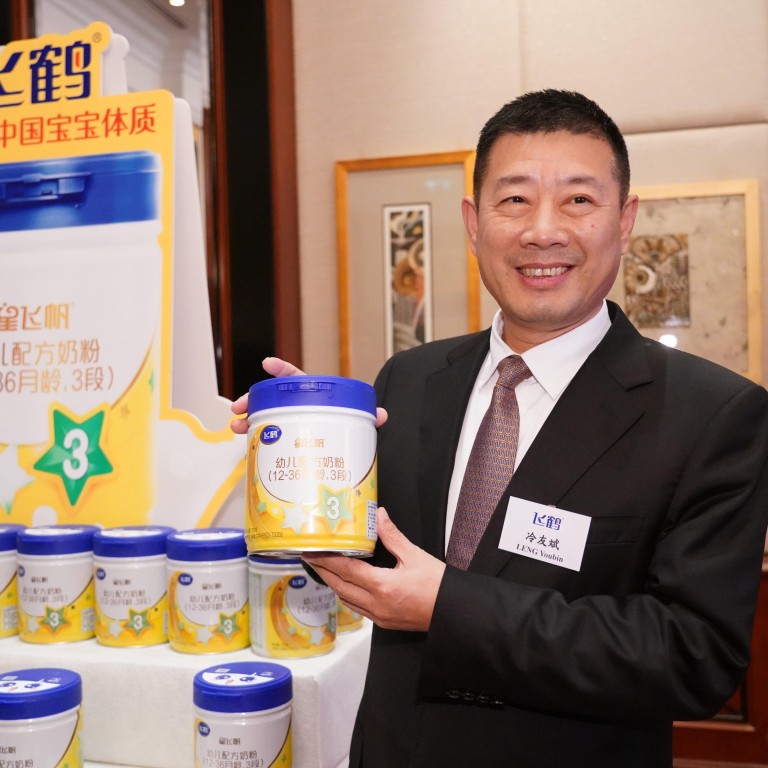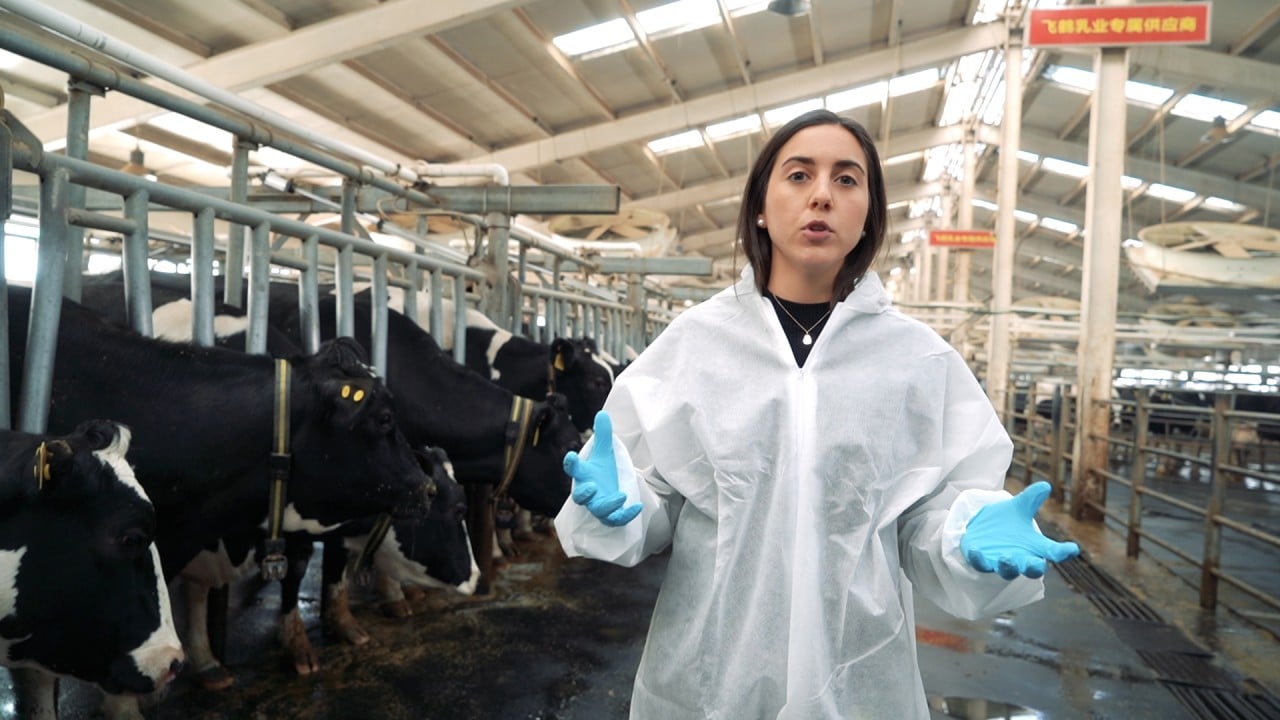
China Feihe hopes to dominate nearly a third of country’s baby milk market, as first-half earnings beat estimates
- High-end products, a growth driver, make up over 80 per cent of Feihe’s profit in interim report
- Company invited investors and analysts to its factories in Heilongjiang province and its headquarters in Beijing after Blue Orca’s attack
China Feihe, the country’s dominant infant formula maker, is confident that it will garner nearly a third of the baby milk powder market in the nation by 2023, as first-half earnings beat market expectations, defying a US-based short seller who last month alleged it manipulated its books.
“We expect to have at least a 30 per cent share in China’s infant formula market by 2023,” president and executive director Cai Fangliang said in an earnings teleconference on Wednesday. “As of now, we are very confident.”
The company also expected to maintain double-digit growth in sales revenue in the second half of the year compared to the first six months of 2020, Cai said.
The milk producer said net profit surged 57 per cent to 2.75 billion yuan (US$397 million) in the six months through June 30 from a year earlier on the back of a 48 per cent gain in sales to 8.7 billion yuan. The results exceeded the consensus estimates for 2.57 billion yuan and 8.4 billion yuan respectively by analysts tracked by Bloomberg.

The stock rose as much as 5.8 per cent in early afternoon trading before ending the day 2.4 per cent lower at HK$16.26.
Higher revenue generated from high-end infant formula products and swift response to the development of the pandemic in China both helped minimise the impact on its production, logistics and sales, the company said in its exchange filing late on Tuesday.
The dairy producer has been dogged by negative press about its accounting since before its initial public offering in November, when Hong Kong-based independent research firm GMT Research warned investors its dividend policy could expose it to attacks by short sellers. Texas-based Blue Orca Capital in July alleged it overstated revenue and under-reported costs to fatten its earnings.
High-end infant formula contributed to over 80 per cent of Feihe’s overall profit in the first half of 2020, up from 72 per cent in the same period last year, according to the filing. Such products command a gross profit margin of as high as 74 per cent, compared to 63 per cent for regular products.

03:54
How Feihe survived the 2008 tainted milk scandal and became China's largest baby formula company
China Feihe, which called the Blue Orca as “inaccurate and misleading,” invited investors and analysts to its factory in the northern most province of Heilongjiang and its headquarters in Beijing earlier this month, according to several reports published by analysts.
“After the field visit and investigation, we think the likelihood of fraud at the company is very low,” Cao Ying, an analyst at Chinese brokerage Essence International, wrote in an August 7 report. “Given the strong performance of its business, we expect significant upside potential for its stock price.”
China Feihe has the biggest market for baby milk formula and infants’ milk in the world’s most populous nation, with 15.6 per cent share as of 2018, according to its listing prospectus.


